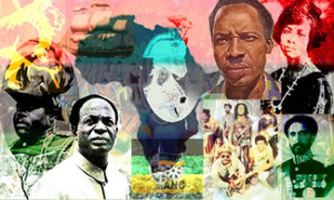 Source: therisingcontinent.wordpress.com
Source: therisingcontinent.wordpress.com The concentration of these stores surprised me, because the frequent reports about NACADA chairman Mututho (albeit squabbling with his CEO), gave me the impression that NACADA would not allow so many liquor stores in one spot. But upon second thought, I remembered that when Mututho first began his fight against alcoholism as an MP pushing for stricter legislation, I wondered on The Zeleza Post, where I previously blogged, whether the issue was really alcohol or the Central Province angst about the lower sperm count of Kikuyu men.
So the complaint is not really about alcoholism; it is about declining fertility rates in Central and a possible decline in Kikuyu voters. That means that all this nonsense about the girl child devouring all the attention and leaving none for the boys is not really about the male human beings; it’s about political class wanting to entrench their dominance in Kenya through the tyranny of numbers.
The other amazing thing is how Kenyans, who are normally quick to notice the tribalist undertones of Central Province politicians, have swallowed and owned this bigoted and regional complaint about women. And so they fail to include unemployment, insecurity, cattle rustling, a dysfunction political culture, police executions without trial, and other problems from other regions of Kenya that do also affect men. That is why I have previously said that manhood works in Kenya like tribe – it makes Kenyans switch off their minds and fail to notice the different class and ideological differences in the competing interests.
But the problem is: the politicians can’t have their cake and eat it. If they reduce men to sperm donors, essentially discouraging men from using their brains, their creativity and soul, then the politicians shouldn’t be surprised if men drown themselves in alcohol. It is stupid to dehumanize men but expect them to be biologically and socially functional. Life doesn’t work like that.
The loyalty to the fallacy of the girl child hogging all the attention at the expense the boy child’s problem also points to the failure of education to inculcate the culture of sophisticated and abstract thinking in the majority of Kenyans. Kenyans are looking for a simple, one-stop answer to the complex problems like alcoholism and crime, and so they are settling for the girl-child blame game.
And the latest boost to this song came from Nyandarua Deputy Governor Waithaka Mwangi on an occasion to mark the International Day against Drug and Illicit Trafficking. Isn’t that amazing? The Deputy Governor ignored the word “trafficking,” and his contribution to the conversation is not the drug lords, some of whom are in elective office, the corruption, or the lack of rehabilitation facilities, and poor regulation of alcoholic establishments or poor law enforcement; it’s that girls are hogging up all the attention.
But repeating the girl-child slogan is burying our heads in the sand. It will not change the reality that alcoholism and dysfunctional masculinity are part of a larger package of dehumanization.
For instance, the sale of alcohol in Kenya is not just rampant despite a bloated and incoherent NACADA funded by our taxes; it is also masculinized. Several advertisement campaigns tie manhood to consumption of alcohol, and suggest that the more expensive a brew is, the more manly the drinker is. That may be fine for the ruling class who can afford the whiskies, lagers and cognacs, but for their poorer brothers who see the richer and more powerful as role models, the only option left is illicit liquor that renders people blind, impotent or dead.
And tied to the problem of alcoholism is the problem of lack of public space for recreation. We can complain about alcoholism or banditry, but honestly speaking, what else is there for Kenyan men to do? The men in government have not had the balls (pun very intended) to rein in on Nyamweya and the other thugs at FKF who are sacrificing the destiny of talented Kenyan footballers for their own greed. The national and county governments have not jealously reserved recreational space for parks, playing fields and cultural centers, forcing many Kenyan men who cannot play is golf at the club, or swim at a resort in the Indian Ocean, to find relaxation in the bars or on matatus.
And it goes without saying that the problems of Northern, Eastern and Coastal Kenyan are intimately intertwined decades of neglect due to the continuation of the colonial policy to develop areas that benefit only the ruling class, and even worse, a redundant education curriculum that forces children to cram rather than teaches them to critically think about the multifaceted issues facing society
If men are worth our trouble, we must take thinking about them and the problems they face seriously. Applying simplistic blame-games which don’t inspire any social change to remove the problems destroying our men, is confirmation that we really don’t care about boys despite complaining on their behalf. Love means deciding to think critically about the problems facing the people we love, not turning others into scapegoats.
Maybe this clip from the Spike Lee directed movie, in which Malcolm X asserts his being a black man, and talks how alcoholism and other social ills are deliberately orchestrated to destroy the black community, might help Kenyan readers think in a more complex manner, like the educated people they should be. Politicians are pulling wool over our eyes with the girl-child talk because they want us to ignore how the gap between the rich and the poor and entrench ethno-patriarchy. But for those who want to cling to whining about the girl child, all I can say is that they are the spoiled children of patriarchy, refusing to believe that the benefits of injustice are drying up.
 RSS Feed
RSS Feed
